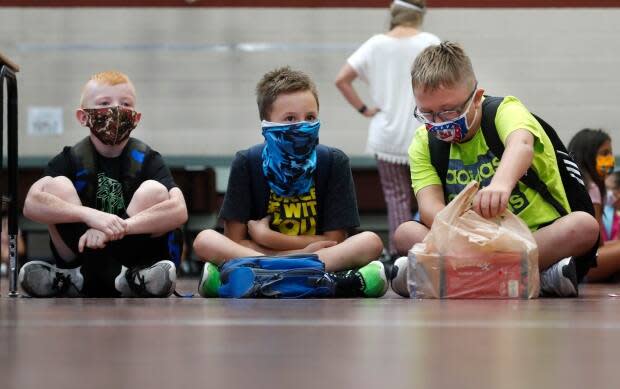Tips on maintaining your child's social life at school during a pandemic
As kids and teens head back to school, a University of British Columbia psychologist has some tips to help them find a way to navigate their social lives in the age of COVID-19.
Amori Mikami, whose research interest includes how supportive classrooms or home environments can help children make friends, says this year's return to school will be very different from previous years.
"It's a big shift. We're living in a time where there are restricted social interactions ... there's constant talking about social distancing and fear and anxiety of what could happen if we don't follow along with these things," Mikami said.
One of the best things parents can do, she says, is to live by example.
Mikami says talking about your own emotions around the pandemic with your child — what you miss, what you fear, any bright sides, what's unknown — and then asking your child the same questions in terms of how they feel can help their social development.
"You're helping them identify and label emotions ... and process fears and building the parent-child relationship in the process," she said.

As for social interactions, Mikami says her research shows that there is value to both in-person and online interactions.
"I don't want parents to think, oh my gosh, this is yet another thing I have to do," she said.
Mikami recommends prioritizing certain social interactions over others, as there are limits on how many people can have.
"So it may be more important to foster a close friendship with a peer that brings out the best in your child, than for you to arrange for your child to have a ton of interactions with acquaintances at this time," she said.
And if kids are having in-person social interactions, she says COVID-19 is another layer to the conversation between parents and children.
"It also depends on your child's age, so I would just encourage parents to approach it like you would approach preparing your child for any playdate or social interaction," she said.
The older children are, she says, the more autonomy they'll want in their interactions.
"Try to understand them and at least acknowledge that," she said. "Try to involve your child or teen in the conversation and solicit their feelings, too."
Finally, it's always good to remember that we are all still coping with a tremendous amount of change.
"It might feel like we've been in this COVID situation forever. This is new territory. We're going back to school and entering the fall with this virus for the first time," she said.
"Be kind to yourself and your children."

